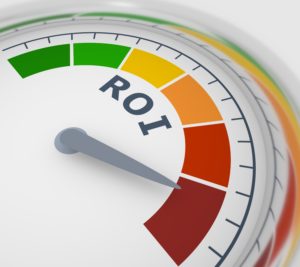With renewable energy increasing in popularity in recent years, it can seem like a great alternative to petroleum diesel, and biodiesel. While each form has its own pros and cons, you will find that renewable diesel can be a great alternative to traditional forms of diesel. However, it cannot be a total replacement. By helping our society become more sustainable, renewable diesel works alongside petroleum diesel and biodiesel to keep our society running smoothly. Here is everything you need to know about the importance of renewable diesel.
How Does Renewable Diesel Differ from Other Forms?
Renewable diesel has unique differences from petroleum diesel and biodiesel. Before we dive into the benefits of using renewable diesel for fleets, let’s make sure we have a basic understanding of each kind of diesel.
Renewable Diesel
Renewable diesel is a sustainable fuel option that has been derived from lower carbon and renewable source materials. It is chemically the same as petroleum diesel but how it is processed greatly differs. It is not a fossil fuel but is made of renewable resources like natural fats, vegetable oils, and greases. Renewable diesel is oxygen-free, eliminating challenges that other forms of diesel have surrounding temperature and storage. Plus, burning renewable diesel is cleaner than petroleum diesel, meaning it releases less carbon into the atmosphere.
What’s the biggest challenge with respect to renewable diesel? It’s not available everywhere. Renewable diesel has taken much of the market share in California where regulations make it preferred. Other markets have seen an increase in the use of renewable diesel, but its availability is limited outside of California.
Petroleum Diesel
Petroleum diesel is a fossil fuel that is made from crude oil. Hydrocarbons, organic compounds, and small amounts of metal are taken from the earth and refined through a process called hydrogenation. While petroleum diesel gets a bad reputation, it has proven to be a necessary resource for our society to continue operating.
Biodiesel
Overall, biodiesel is a form of renewable diesel that is blended with petroleum. Unlike renewable diesel, the refining process that biodiesel adheres to creates issues in cold temperatures. Using transesterification, people are able to create biodiesel as an alternative to petroleum diesel.
Benefits of Renewable Diesel
One of the obvious benefits of using renewable diesel is the effects it has on the environment. In fact, it can cut greenhouse gas emissions by up to 85%. Its low carbon footprint produces cleaner air and greater efficiency. Its impact on the environment is one of the renewable diesel’s most prevalent differences from petroleum and biodiesel. While biodiesel is a greener option than petroleum diesel, it still does not uphold the same level of sustainability as renewable diesel.
Renewable diesel can be easily stored for long periods of time without having to worry about the outside temperature. Other forms of diesel begin to experience chemical breakdowns in cold temperatures, but renewable diesel can remain consistent even in arctic conditions. It does not have as many regulations as other forms of diesel and helps engines run with more power.
How Fleets Can Leverage Renewable Diesel
Fleets travel thousands of miles and release greenhouse gases as they move from one location to the next. Using renewable diesel cuts down on the amount of pollution and helps the fleet remain environmentally conscious. Plus, it can reduce the amount of maintenance needed for fleets to continue running smoothly. If you have questions about your fuel options and need help determining what is right for your fleet, we can help you find the best solution for your needs. Contact us today!








